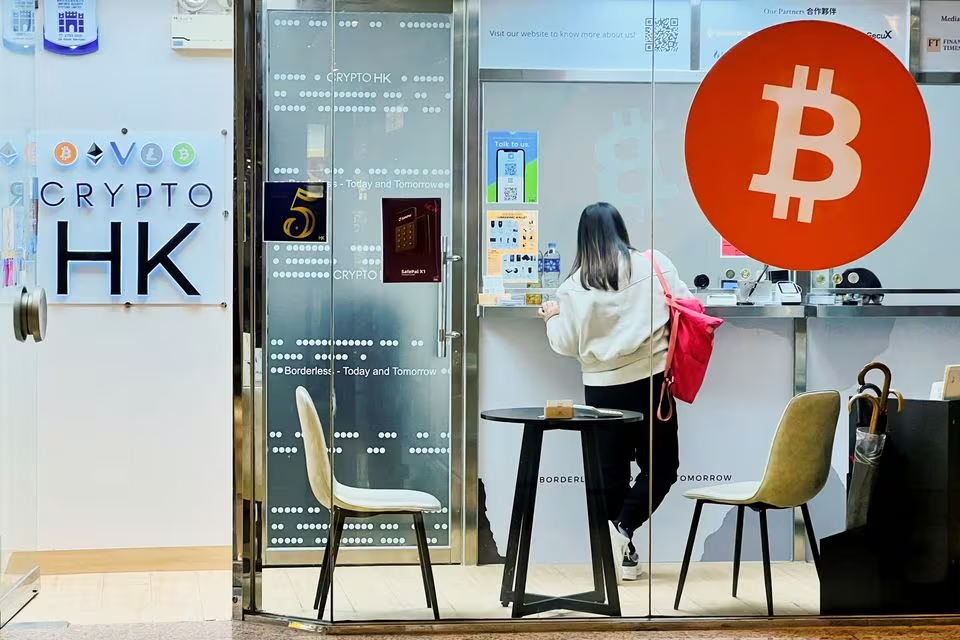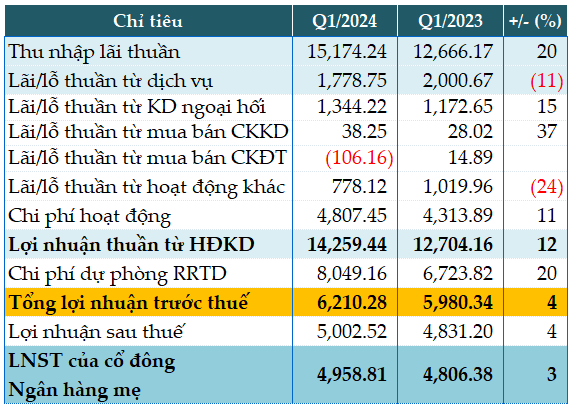Cryptocurrency trading and mining have been banned in China since 2021. So, Mr. Run uses a bank card issued by small rural commercial banks to purchase cryptocurrencies. Each time, he can only trade a maximum of 50,000 Chinese yuan (6,978 USD) to avoid being monitored.
“Bitcoin is a safe haven asset, just like gold,” Run shared. Currently, he owns 1 million Chinese yuan worth of cryptocurrencies, accounting for half of his investment portfolio. Meanwhile, the allocation for Chinese stocks is 40%.
His cryptocurrency investments are currently yielding a 45% profit, while the Chinese stock market has declined for three consecutive years.

Like Run, an increasing number of Chinese investors are using different methods to own Bitcoin and other cryptocurrencies. They believe this is a safer channel than Chinese stocks or real estate.
Cryptocurrency trading in China is in a gray area. Despite China’s ban on cryptocurrencies and the implementation of various cross-border capital control measures, residents of the country can still trade cryptocurrencies such as Bitcoin on exchanges like OKX and Binance, or through OTC trading channels.
Chinese investors can also open foreign bank accounts to purchase cryptocurrencies.
After Hong Kong allowed cryptocurrency trading in 2023, Chinese citizens began transferring money to Hong Kong to buy cryptocurrencies. According to regulations, Chinese citizens are only allowed to buy a maximum of 50,000 USD in foreign currency, but this money can only be used for purposes such as overseas travel or education.
The sluggishness of the Chinese economy has made “investments here extremely risky, uncertain, and easy to disappoint. Therefore, many people are shifting their money to foreign assets,” a senior executive at a cryptocurrency exchange in Hong Kong said.
Bitcoin and virtual assets have attracted many Chinese investors. He said, “Almost every day, we see mainland Chinese investors participating in the cryptocurrency market.”
As retail investors rush into the cryptocurrency market, Chinese brokerage firms and other financial institutions are following suit. Unable to find growth opportunities at home, many have sought to enter the cryptocurrency business in Hong Kong.
“As a Chinese brokerage firm, you may face a bleak stock market, weak IPO demand, while other areas are also contracting. You need a growth story to tell shareholders and the board of directors,” shared the director of a cryptocurrency exchange.
Branches of the Bank of China, China Asset Management (ChinaAMC), and Harvest Fund Management are all considering entering the cryptocurrency business in Hong Kong.

Through exchanges with cryptocurrency exchanges and interviews with retail investors, Reuters found that buying/selling Bitcoin is not difficult on the Chinese mainland.
Cryptocurrency exchanges such as OKX and Binance still provide cryptocurrency trading services for Chinese investors and guide them to use fintech platforms such as Ant Group’s Alipay and Tencent’s WeChat Pay to convert Chinese yuan to stablecoins for cryptocurrency trading.
According to cryptocurrency data company Chainalysis, cryptocurrency-related activities have seen significant growth in China. In terms of P2P trading volume globally, China has risen to 13th place in 2023, from 144th place in 2022.
Despite the ban, the cryptocurrency market in China recorded a trading volume of up to 86.4 billion USD in the period from July 2022 to June 2023. This figure is even higher than Hong Kong’s 64 billion USD, according to Chainalysis.
Most of China’s cryptocurrency transactions “take place through OTC channels or unofficial channels such as P2P trading businesses,” Chainalysis said in a report.
Cryptocurrency trading shops are often located on bustling shopping and business streets. At Crypto HK, a popular cryptocurrency trading shop on Admiralty Road (Hong Kong), customers can buy cryptocurrencies with a minimum value of 500 HKD (64 USD) and without providing any identification documents.
Michael Wang, a cryptocurrency broker, said daily trading volume is in the range of a few million Chinese yuan or even tens of millions of Chinese yuan.
Stock analyst Charlie Wong (35 years old) bought Bitcoin through Hashkey Exchange, a legal exchange in Hong Kong.
“I’ve been looking tired and haven’t found any opportunities in traditional fields. The Chinese real estate market and other assets have been very disappointing. The economy is undergoing a significant transition,” he said.
In China, the real estate crisis in recent years has led to a decline in house prices – the main asset of households. The stock market is even worse, with the CSI 300 falling by half since the beginning of 2021.
Meanwhile, Bitcoin has jumped 50% since mid-October 2023.









































